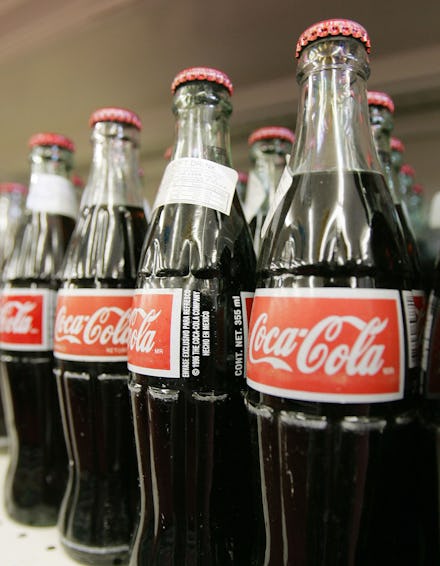Bloomberg Soda Ban: It's Back and Better Than Ever (in Mexico)

As income per capita rises across the developing world, health experts are seeing a huge rise in obesity rates, even in poorer countries. Mexico, whose consumption of sugary drinks per capita is the highest in the world, is a perfect example of this scary trend. While NGOs and governments are working to fight against world poverty and hunger, obesity and diseases such as Type 2 Diabetes are becoming increasingly common, causing a world health crisis in countries that are least equipped to fight it.
With a 32.8% obesity rate, Mexico has passed the United States and is now the most overweight country in the Americas, according to an article in the Huffington Post. An in-depth report from Al Jazeera argues that a changing diet is the highest contributing factor to the rising weight of Mexican schoolchildren and adults, as GDP per capita increases but the amount of healthy eating options does not.
Mayor Michael Bloomberg of New York City, one of the richest places in the world, tried to implement a tax on sugary drinks that was meant to curb the heavy consumption of sodas and other sugary drinks that are contributing to the obesity epidemic. His effort was blocked in court. So why is he now turning his effort to Mexico, a country where the obesity problem seems to be even greater?
In fact, in Mexico, where advertising dollars come almost exclusively from the biggest international conglomerates, including producers of sodas and other sugary drinks, a large grant from Bloomberg Philanthropies may be the key to creating a fair fight for consumer advocates and health care activists who are looking to reduce the threat to public health that one sees every day across Mexico.
While soft drinks have become increasingly popular the world over, companies such as Coca Cola have had such a successful campaign in Mexico that sodas are a part of even the most intimate of family rituals.
Joaquín Praxedis Quesada, an anthropologist who works for the Mexico City government, speaks to the incorporation of these unhealthy drinks in every aspect of Mexican lives. "There are tamales, cookies, seasonal fruit — and a soft drink,” he said of traditional family burials. “When a culture integrates soft drinks into the most sacred, which is its relationship with its ancestors, then they are part of its identity."
One researcher in the Health Economy department of Mexico’s National Institute of Public Health estimated that a 10% tax would reduce sugary drink consumption by 10 to 13%, according to the New York Times. Although some argue that the tax will simply encourage the consumption of homemade sugary drinks, the Institute of Public Health believes that more families will turn to water or milk as substitutes for soda, which will have an impact on overall obesity in the country.
"We're a country of malnourished fatsos," José Antonio Álvarez Lima, a former state governor turned newspaper columnist told Mexican political news website Animal Politico. In many families where the adults are overweight or obese, researchers have also found undernourished children. This dichotomy comes from the lack of choice of available food as well as the proliferation of candy and highly processed snacks that are ubiquitous on the streets of Mexico City and the country as a whole. Moreover, in some rural areas it is easier to find a soft drink than potable water.
Late last Thursday, the lower house of congress in Mexico passed the tax that Bloomberg Philanthropies is supporting wholeheartedly. The tax will be 5% on packaged items that typically contain high calorie counts but low nutritional value, as well as an $0.08 tax on each liter of a sugary drink. Although the Senate is widely expected to pass the tax as well, the international companies that sell these products will put up a big fight in Mexico City to combat the new policy.
"This appears to be the most aggressive strategy anywhere in the world in recent years to improve diets via tax disincentives," said Michael Jacobson, executive director of the Center for Science in the Public Interest in Washington, D.C.
In the end, with or without Bloomberg Philanthropies or Bloomberg's money and influence, it is impossible to deny that the proliferation of soft drinks across the world, especially as incomes rise and global inequality increases, has a serious negative impact on global health. I do not know whether or not a tax on these beverages will have an impact on health and obesity rates in Mexico, but I hope that we can find some solution for both malnutrition and obesity — and fast.